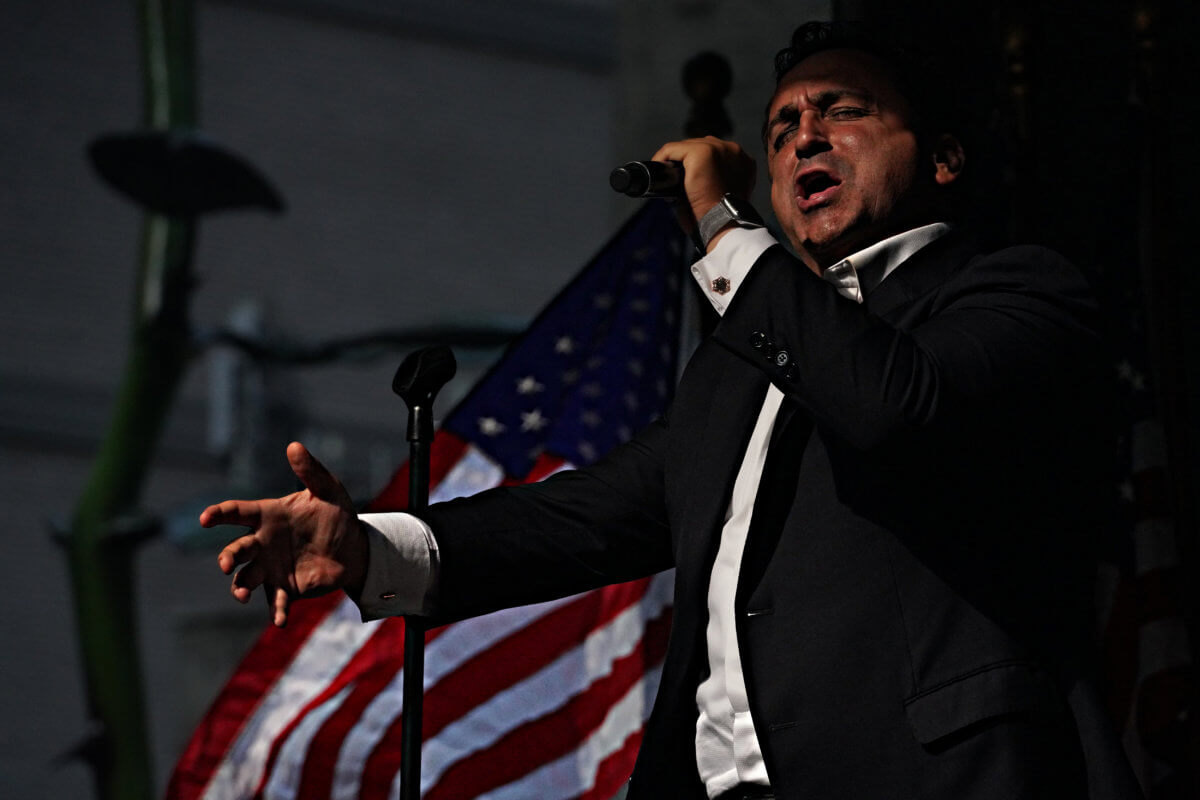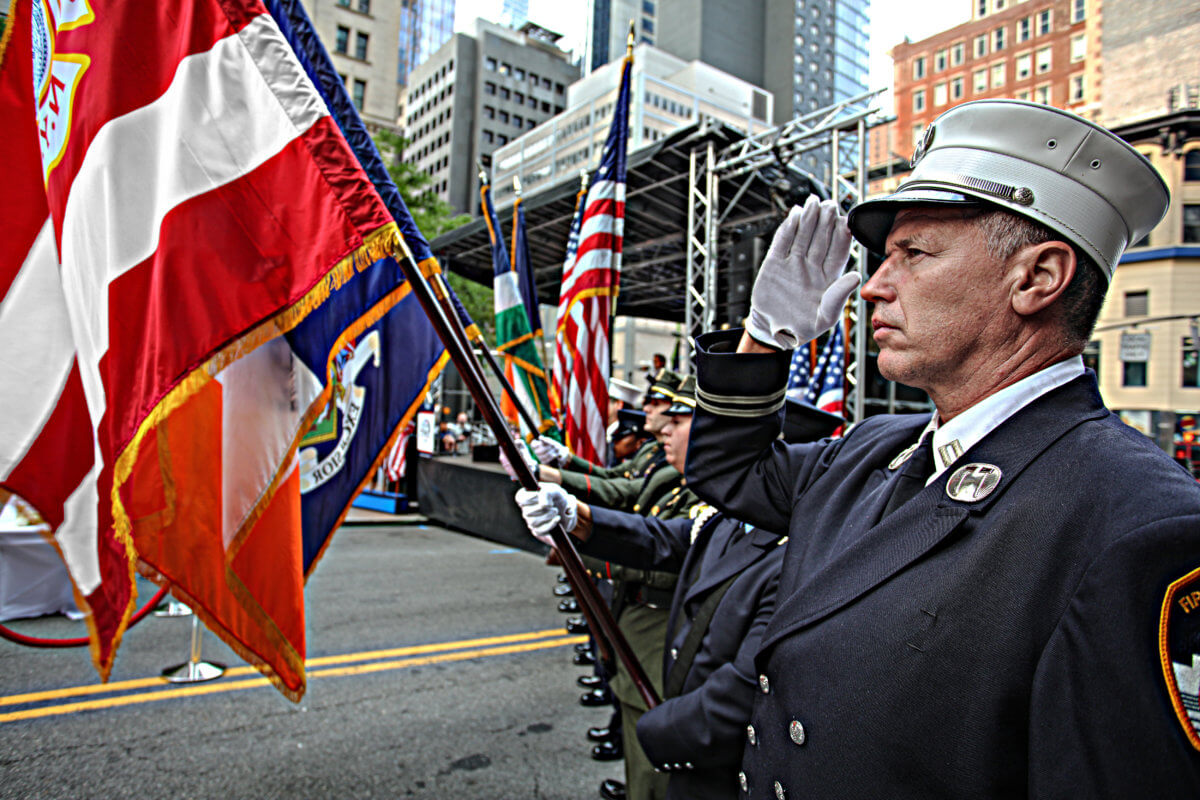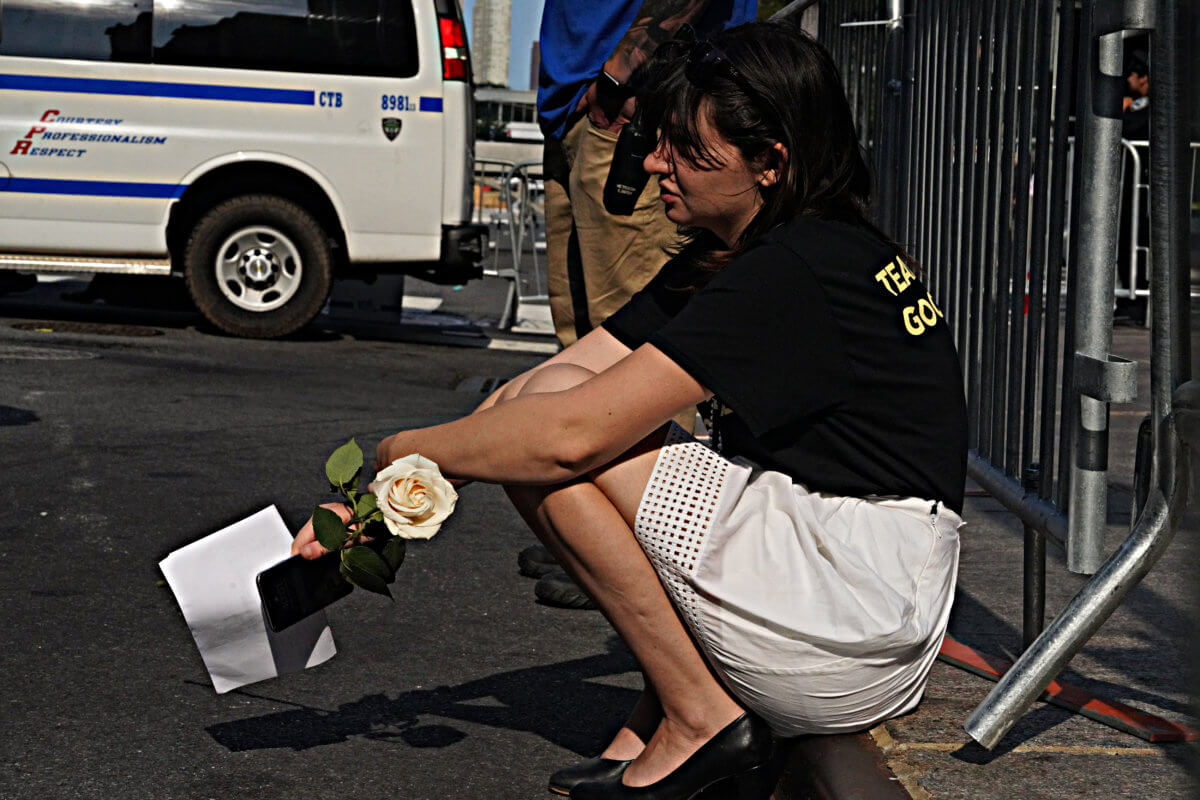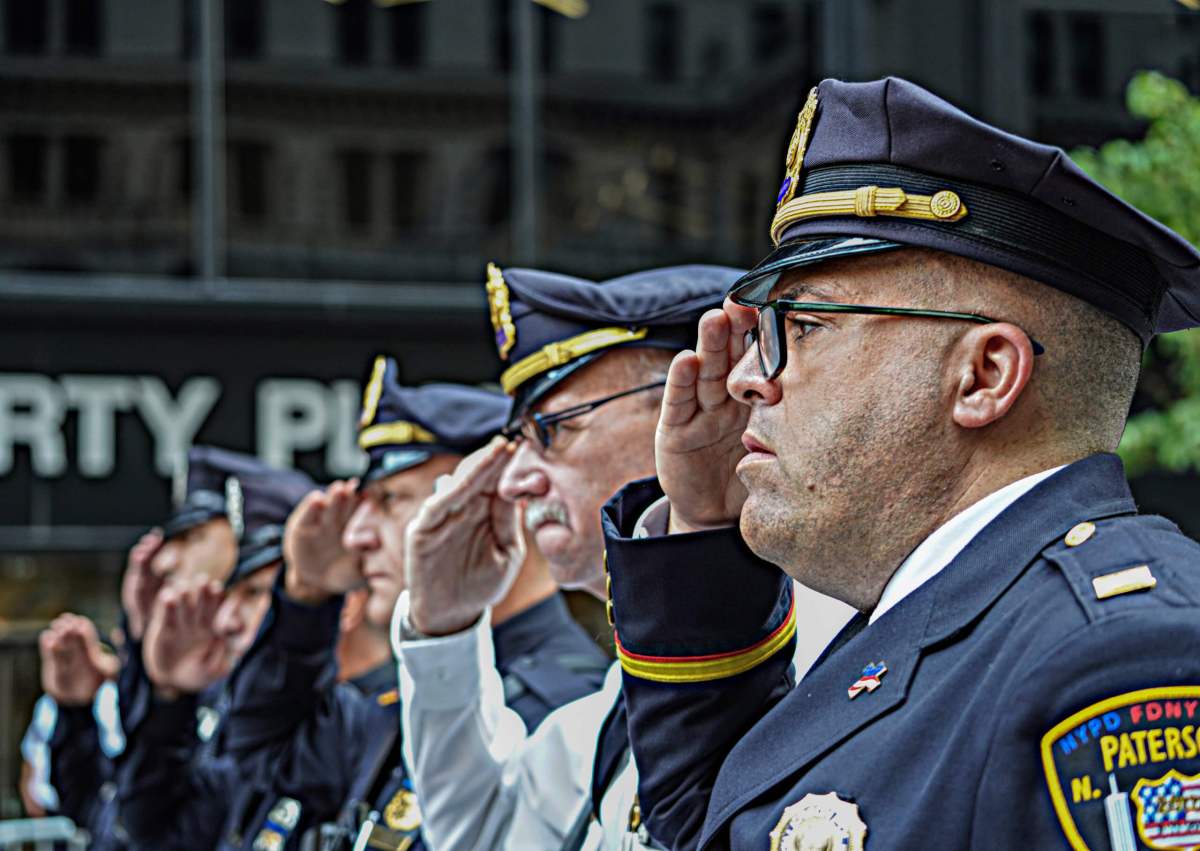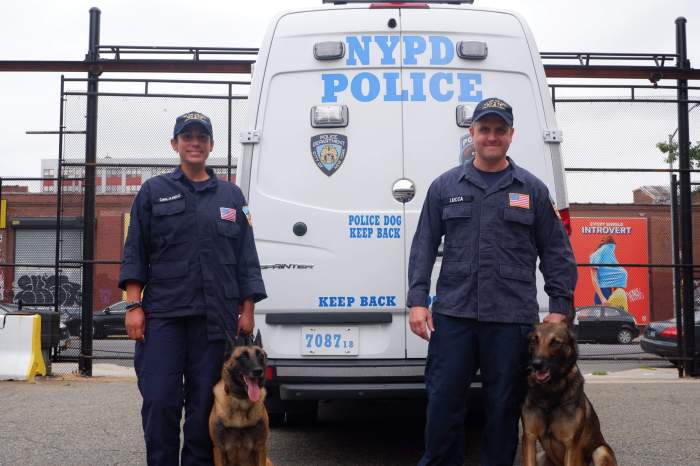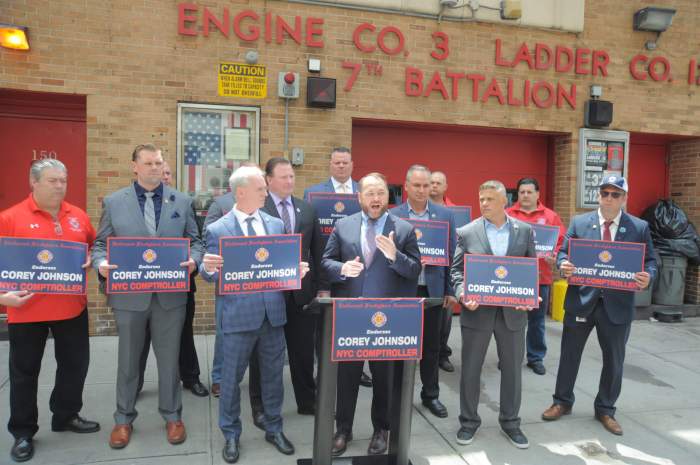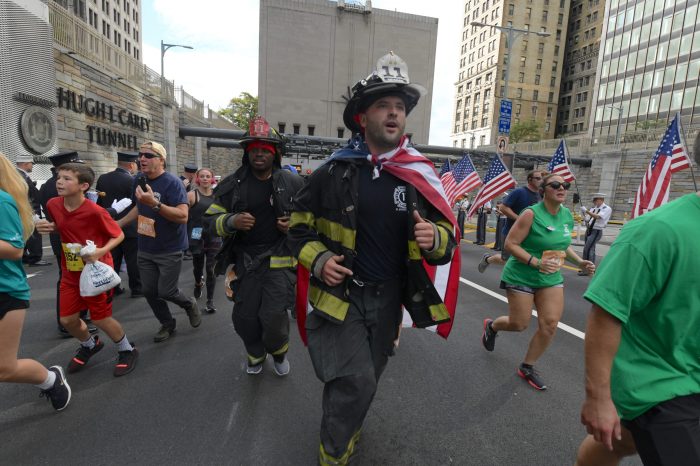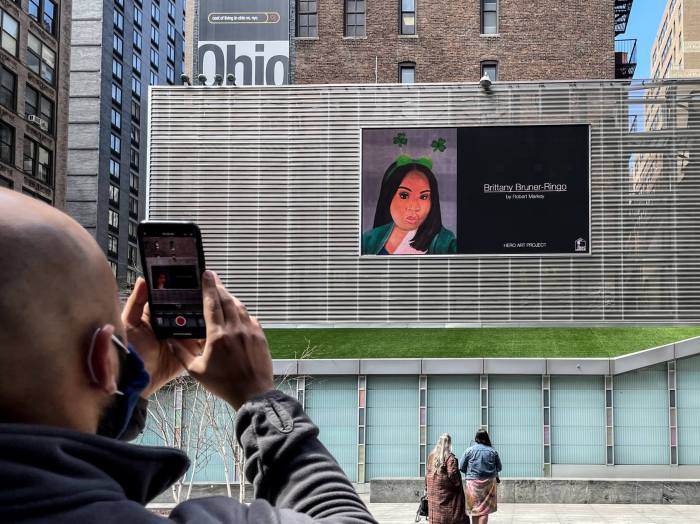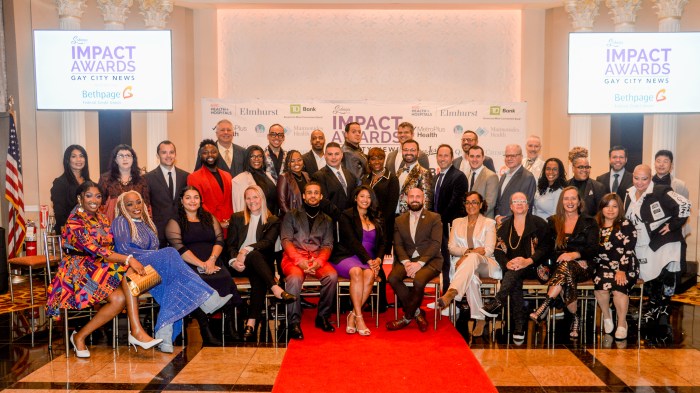Following the 20th anniversary of the Sept. 11, 2001 terrorist attacks, the Tunnel to Towers Foundation paid tribute in Lower Manhattan on Sunday to all those lost due to illnesses incurred during the recovery efforts at the World Trade Center site.
The Tunnel to Towers Foundation began their own name reading ceremony in 2020 in lieu of a greatly reduced traditional proceeding due to the COVID-19 pandemic. This year, the organization is continuing their tradition by reading the names those who perished in the years after the attack from illnesses they suffered during the recovery effort.
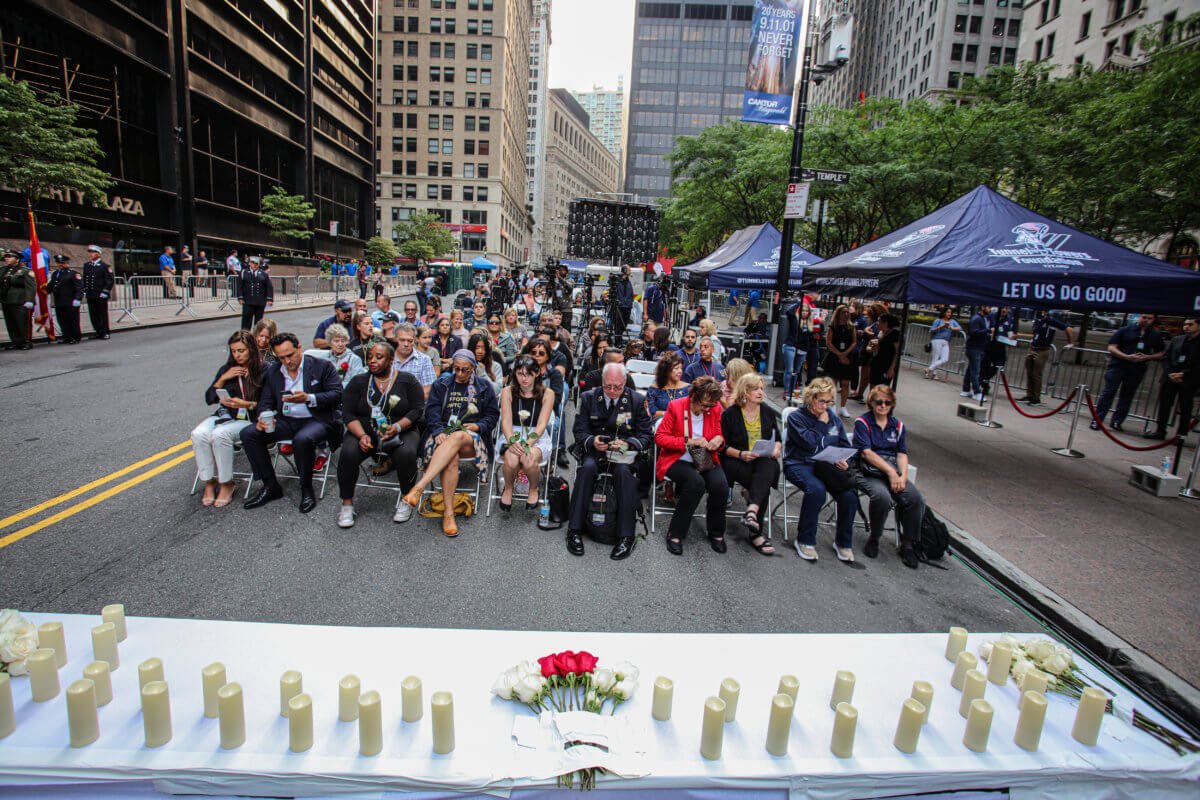
Held 24 hours later on Sept. 12 directly beside Zuccotti Park, this name-reading ceremony supplemented the preceding day’s observance at the 9/11 memorial. The event aimed to remind the world that the lives lost as a result of that day did not just occur in 2001, but have in fact continued to take fathers, mothers and sons and daughters from their loved ones.
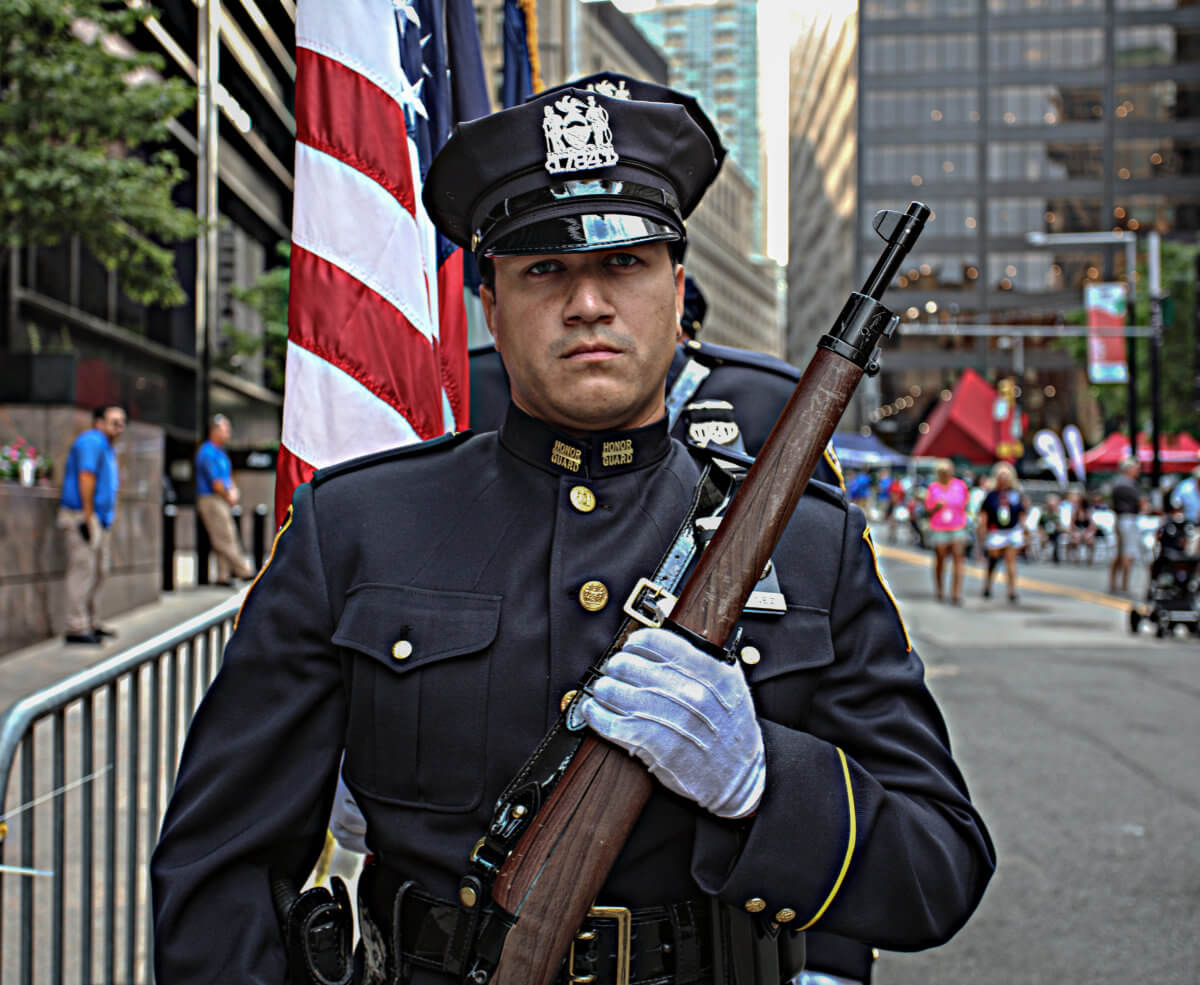
“We all know what happened on 9/11. But what about Sept. 12? And the day after that? And the day after that, and so on?” Frank Siller said to emotional onlookers at the service’s commencement. Siller helped found Tunnel to Towers in honor of his brother, Firefighter Stephen Siller, one of the 343 New York City firefighters killed in the attacks on the World Trade Center.
Frank Siller said that something had to be done to recognize the first responders, construction workers and others who toiled at what was then called Ground Zero, searching for survivors, removing the debris — and ultimately being exposed to carcinogens and other toxins throughout their effort.
“On Sept. 11, the workers and the students, and everyone who was part of this community, the devastating effects of 9/11 did not end in the rubble and the debris from the collapse,” Siller said. “It did not end after the toxic dust in the air settled on the streets, and the streets around here in Lower Manhattan. The great tragedy of the worst terrorist attack on US soil continues to affect us, and it isn’t over yet. Because of 9/11 thousands are getting sick and suffering, and thousands upon thousands have died from 9/11 illnesses.”
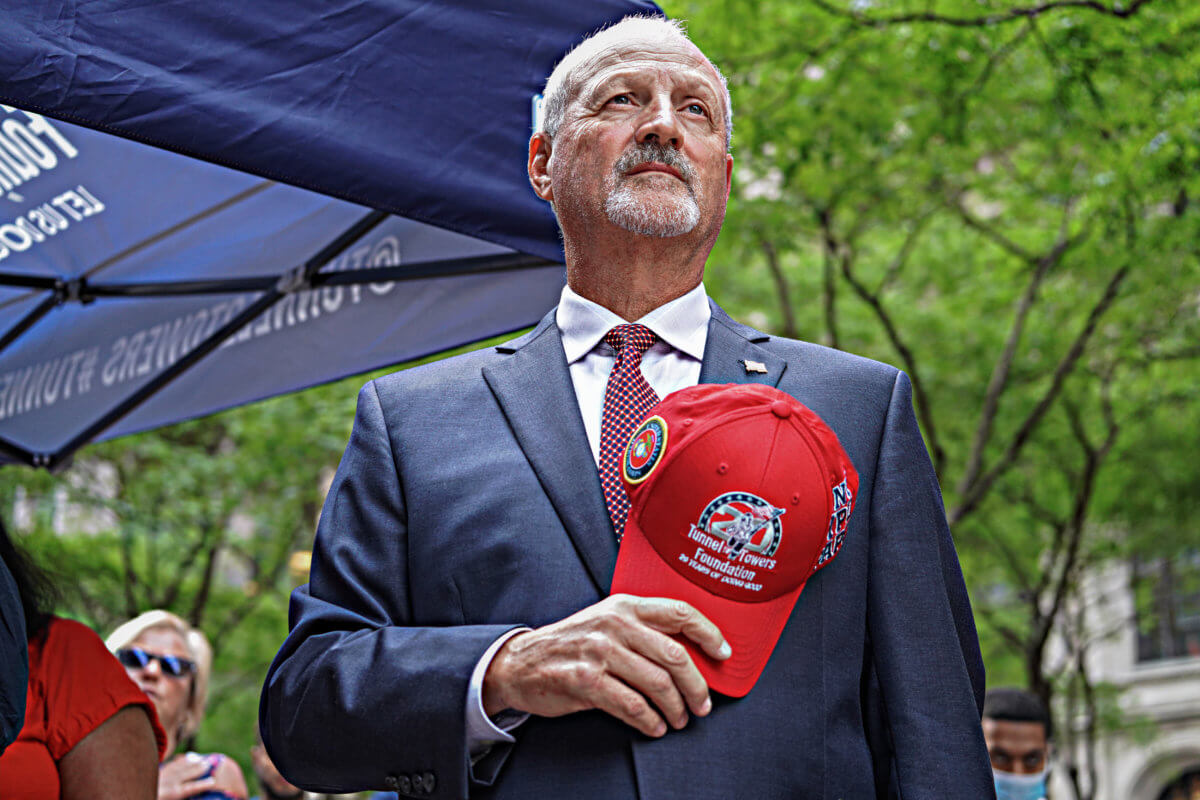
Hundreds gathered to sit and listen to the names of those gone too soon, along with the harrowing stories of their lives post-9/11.
For over 20 years, frontline responders who survived the Twin Towers collapse have been slowly losing their lives due to respiratory illness, cancer, and other diseases instigated by the remnants of the terrorist attack. These workers not only aided on that infamous date but also continued to search through the rubble in an attempt to find survivors and identify remains for months, hoping to bring closure.
Living with PTSD from the haunting memories, they paid for their heroic acts with terminal illnesses.
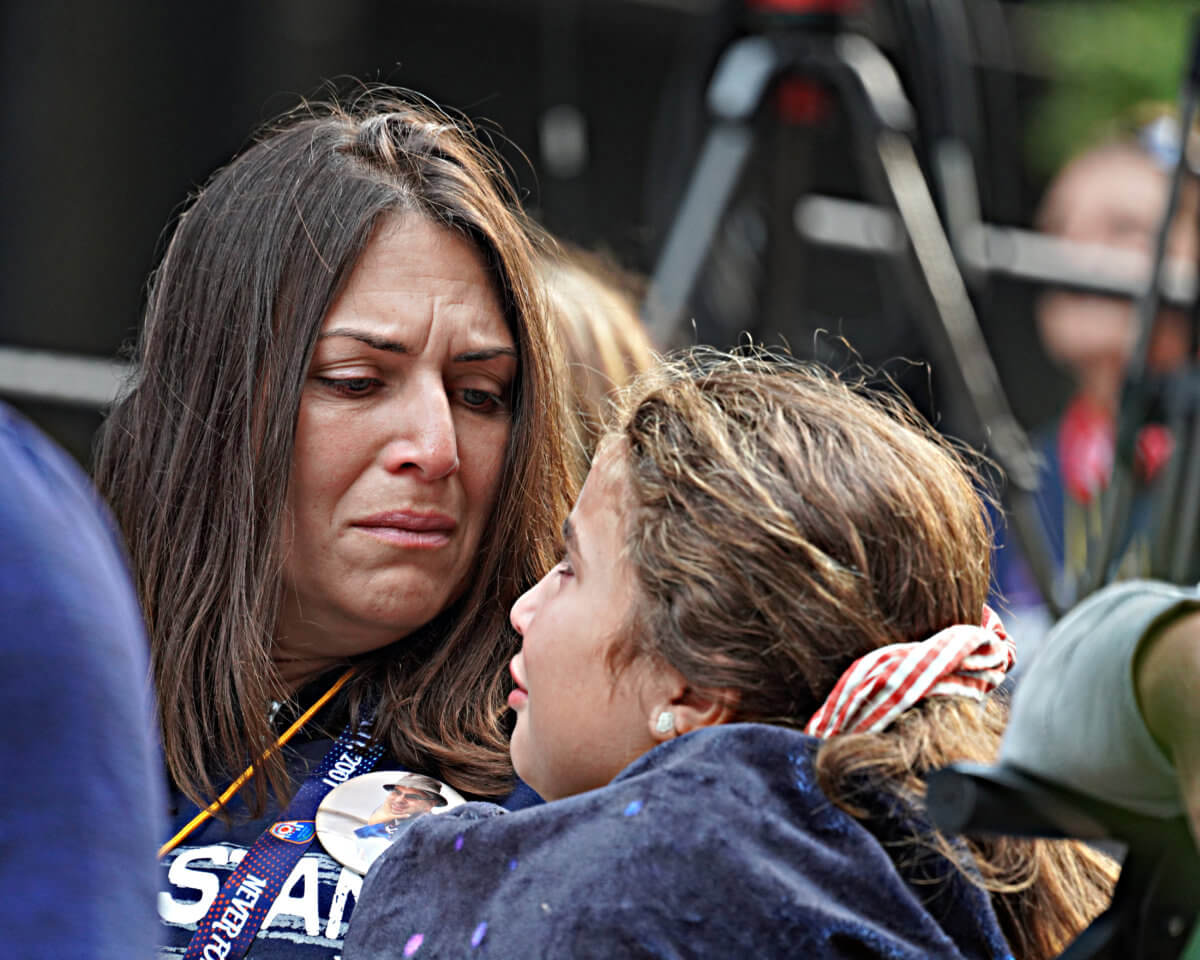
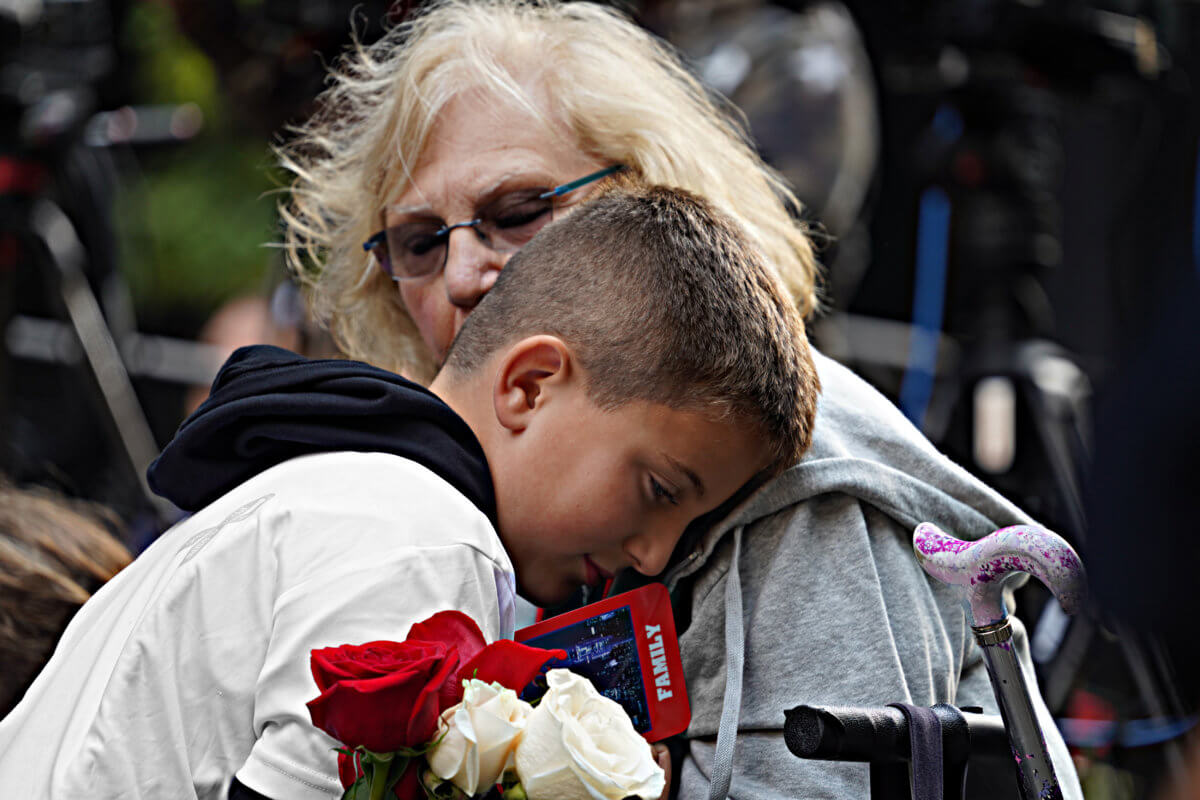
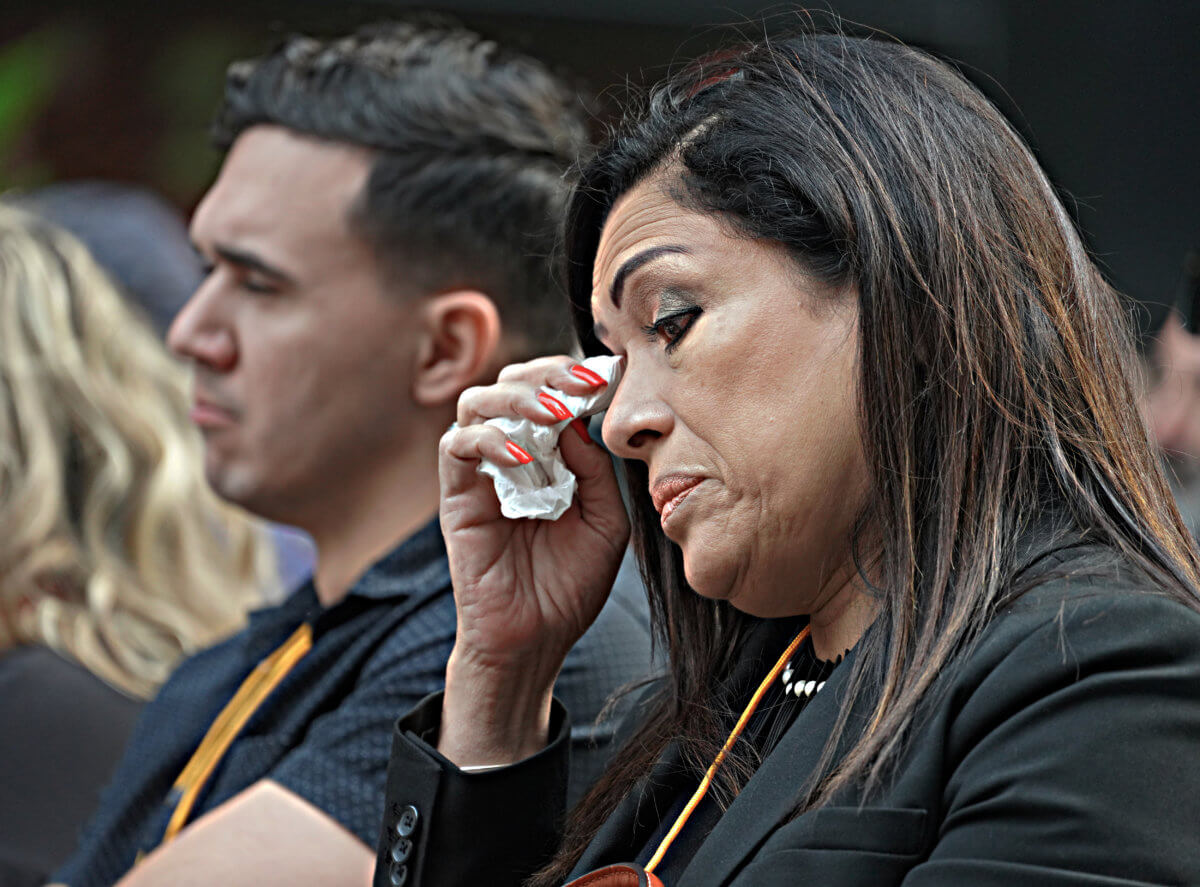
JoAnn Stach remembers her husband, Firefighter Joseph Ricard Stach Jr., who passed away from stage 4 pancreatic cancer three years ago. For Stach, this ceremony is about the legacy frontline workers have left behind and the stories of their bravery and sacrifice are passed on from generation to generation.
“I don’t feel like I’m reminding anyone. You tell the story and eventually it becomes history. I feel like if one person heard it, and retold the story, then it becomes history. He gets a legacy, and I will make sure along with the foundation that his legacy carries on. Everybody here has a story, you just have to take a moment to listen to it and repeat it,” Stach said.
Stach recalls her husband suffering from PTSD immediately after the terrorist attacks, and then he was diagnosed with COPD. She explained that they both knew it was only a matter of time since so many of his colleagues were dying of cancer.
For families like the Stachs, 9/11 isn’t an incident that occurred 20 years ago, it’s a burden they continue to undergo.
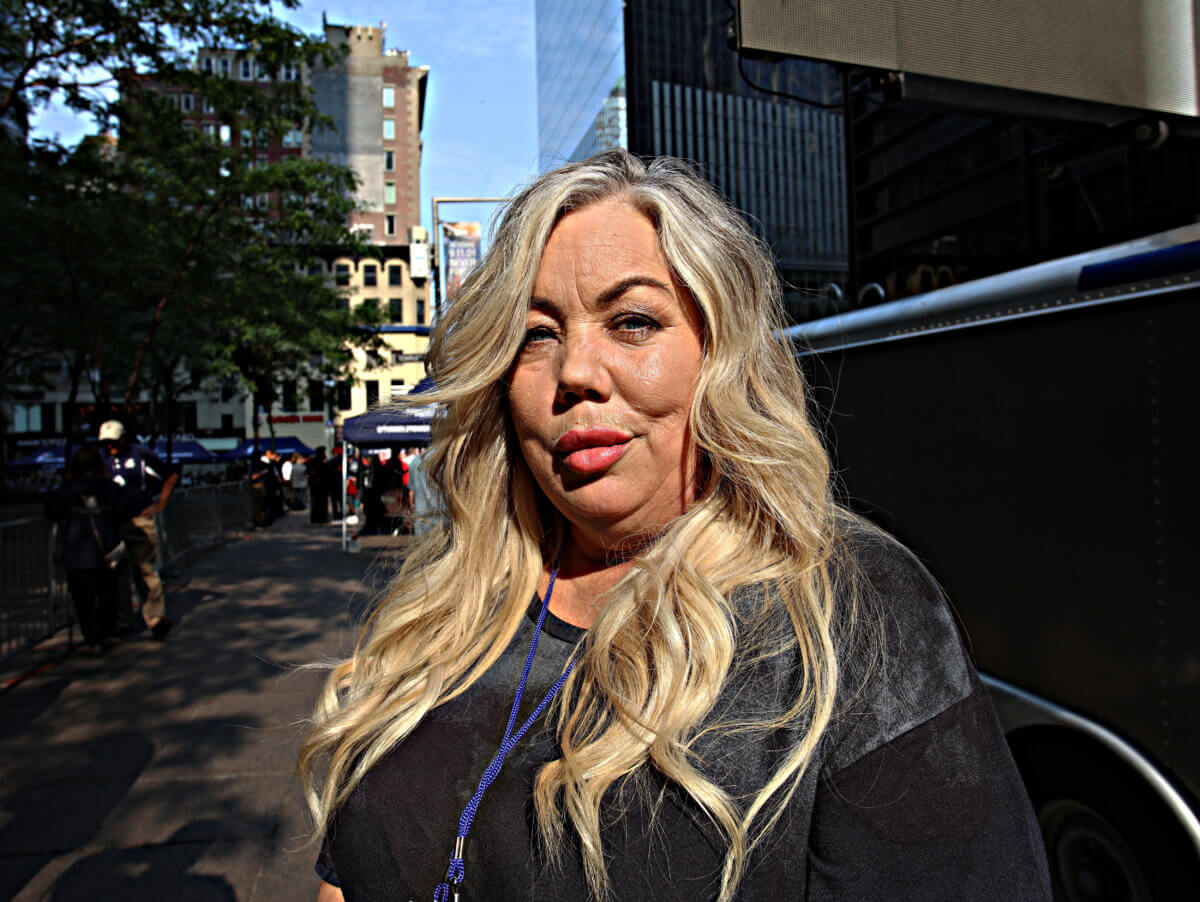
“It’s not going to end any time soon either, which is so sad because these people gave up their lives. They knew that they were running into a fire. They ran into there that day, and every day after that, knowing there was imminent danger, and then when they all started to get sick, they knew it was only a matter of time,” Stach said. “I look at his friends, guys that he worked with that are retired now and I think, ‘God, please, make them be well. Please hold onto them for a little longer.’”
Families of firefighters are well aware of the risks that come with the territory; however, Stach says that when she was driving her husband to chemotherapy 17 years after the attacks, she turned to ask him, “Would you do it again,” and his immediate response was, “Yes.” He had no regret even knowing the outcome.
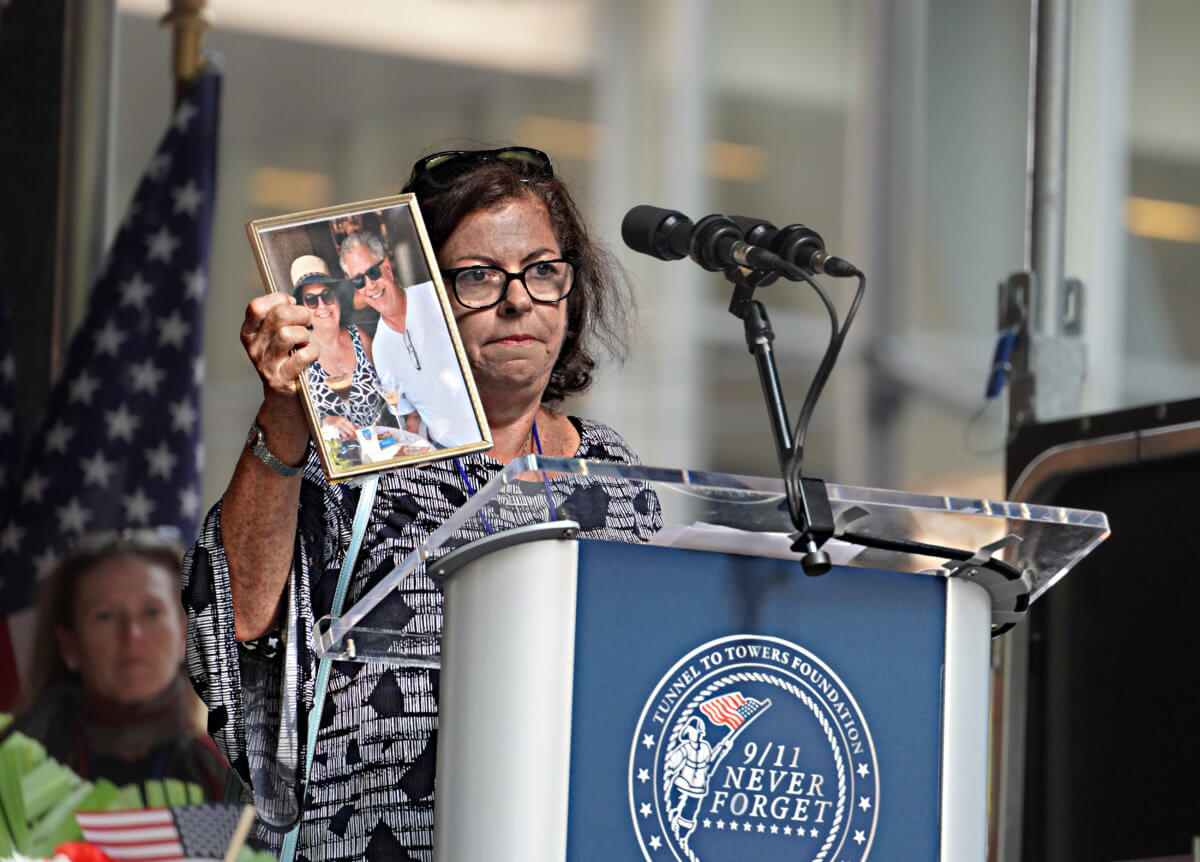
“When they leave for work you hold your breath, and when they come back you exhale. But after 9/11, this was a constant fear,” Stach said.
During the ceremony, Tunnel to Towers announced that the organization has helped to pay the entire mortgages on 20 homes belonging to New York City first responders who have passed away from 9/11 related illnesses.
